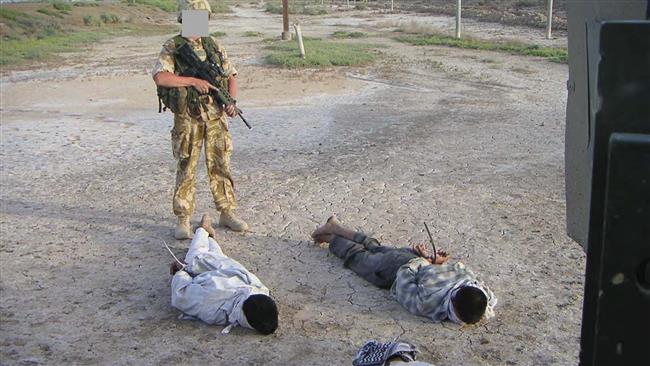Claims of war crimes by UK forces in Iraq have reasonable basis: ICC
The chief prosecutor of the International Criminal Court (ICC) has announced that there is “reasonable basis” to believe British troops committed war crimes in Iraq during the US-led military invasion of the West Asian country.
“The [prosecutor’s] office has reached the conclusion that there is a reasonable basis to believe that members of the UK armed forces committed war crimes within the jurisdiction of the court against persons in their custody,” Fatou Bensouda said on Monday in her conclusion on the long-running inquiry into the role of British soldiers in Iraq between 2003 and 2008.
The announcement was made in a 74-page report delivered in New York to the annual assembly of state parties to the jurisdiction of the court.
It would mean that The Hague-based ICC will press ahead with a probe into reports that British military forces abused and murdered their Iraqi prisoners after the US-led invasion, UK-based daily The Guardian reported.
According to the report, Bensouda’s conclusion reaffirms “interim conclusions made by the court when it ended a previous, preliminary investigation into similar allegations in 2006,” when the ICC pointed to seeing evidence suggesting that British forces did commit war crimes in Iraq, “namely willful killing and inhuman treatment” of individuals.

However, the ICC concluded at the time that it should not take further action since there were fewer than 20 allegations. Its probe was subsequently reopened by Bensouda in 2014 after receiving new information from the Birmingham law firm, Public Interest Lawyers (PIL), among others.
The PIL, the daily added, “represented the family of Baha Mousa, the Iraqi hotel receptionist tortured to death by British troops in 2003.”
Bensouda’s report further examined the controversy over the claims and referred to the Iraq Historic Allegations Team (IHAT).
It also said that “amid concerns of political interference, the defense secretary (Michael Fallon) announced the closing of IHAT ahead of the originally scheduled time frame by 30 June 2017, citing IHAT’s own forecasts that the unit’s caseload was expected to reduce to around 20 investigations by the summer 2017.”
British military authorities had previously expressed confidence that the ICC would not move to the next stage and declare a formal probe, mainly because the UK is capable of investigating the allegations on its own.
According to a UK government spokesperson quoted in the report, “We have a legal responsibility to investigate credible allegations of wrongdoing by UK forces, and that is what we are already doing as part of service police legacy investigations, which is reviewing the relatively small number of remaining cases after the closure of IHAT.”
“We are confident that our existing efforts to investigate allegations preclude the need for any investigation by the ICC,” the official added.
Occupation of Syria’s highest peak Mount Hermon part of ‘Greater Israel’ project
Iran: Syrian people will decide their future without foreign interference
IRGC says Iran’s power exceeds borders, warns enemies to adjust themselves
Dozens detained, several wounded in Israeli raids in West Bank
‘Ethnic cleansing’: Hamas blasts Israeli attacks on Gaza hospital amid intl. silence
Saudi delegation meets HTS leader at presidential palace in Damascus
Relentless Israeli ceasefire violations justify need for self-defense: Lebanese MP
Tel Aviv tells Damascus Israeli forces will remain in occupied territory: Report













 This makes it easy to access the Press TV website
This makes it easy to access the Press TV website